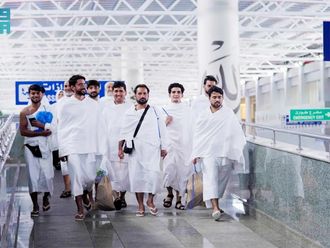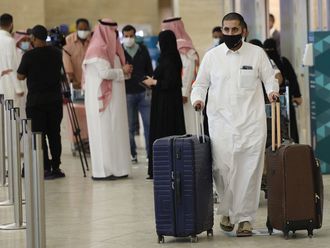Washington: Almost a decade ago, an Arab diplomat famously likened the relationship between the United States and Saudi Arabia to a Catholic marriage “where you can have no divorce.”
But there can be estrangement. As the Obama administration begins the arduous task of assessing the newly reconstituted House of Saud after the death of King Abdullah on Friday, the relationship between the United States and its most important Arab ally, one fostered with great care and attention to detail over the years, is at a critical and tumultuous point.
Saudi Arabia’s new king, King Salman, 79, inherits both the policies put in place by the more assertive brother he is succeeding and the conflicts that in recent years have characterized relations with Washington. On issues from Iran to the Arab Spring, from Syria to domestic issues within Saudi Arabia like the recent flogging of a journalist, there have been significant differences between US officials and the Saudi royal family.
The close ties once nurtured so lovingly by the Bush administration have given way to complaints from the Saudis about an aloof US president who should have done more to unseat President Bashar Al Assad of Syria and less to unseat former President Husni Mubarak of Egypt. The Saudis also remain deeply skeptical about President Barack Obama’s efforts to negotiate an agreement with Iran over its nuclear programme.
“The Saudis are hard pressed to think of any country or collection of countries that can do what the United States can do,” said Jon B. Alterman, director of the Middle East programme at the Centre for Strategic and International Studies in Washington. “At the same time, they are worried that the United States’ intentions are changing at a time when they don’t have an alternative or even the structure to find an alternative.”
Yet Saudi Arabia is still managing to change the global economy at a crucial time by flooding oil markets, keeping oil output so high that it is aiding Obama on a number of fronts. By depressing oil prices, Saudi Arabia has given him a boost at home. The Saudis have helped Obama abroad as well, because those lowered prices help pressure Iran over its nuclear ambitions and Russia over its aggression in Ukraine.
“The president certainly hopes, and we expect, that the strong relationship that exists between the United States and Saudi Arabia will endure under the leadership of the new king,” Josh Earnest, the White House press secretary, said Friday.
The Saudis have long relied on the United States as their military umbrella. But that relationship soured after King Abdullah felt that Obama was ignoring the region, or at least Saudi concerns. According to a leaked diplomatic memo, in 2008 King Abdullah urged the United States to weigh military action against Iran to “cut off the head of the snake.” Now the Saudis worry about a US deal with Iran, and Saudi Arabia, relishes the split between Congress and the White House over more sanctions and the possibility that they could scuttle an agreement.
“I think the Saudis and the Americans have developed the habit of coexisting with their disagreements,” said Khalid Al Dakhil, a political-science professor in Riyadh, the Saudi capital.
White House officials said they were confident that the United States and Saudi Arabia would continue to work together on a range of issues, including the fight against Daesh and the response to the recent instability in Yemen. And they said the relationship had improved in recent months, in part because of Obama’s decision to launch air strikes against Daesh, a campaign that Saudi Arabia has joined and that King Salman’s ascension to the throne was not expected to derail.
“We are much closer now,” a senior administration official said, speaking on the condition of anonymity . “I wouldn’t say we are completely aligned, but it’s far less than it was at times.”
Others are not so sure.
“The recent shift in Saudi regional and foreign relations is not how outspoken it has become but how muscular it has become,” said Fawaz A. Gerges, a professor of international relations at the London School of Economics and Political Science. “It has long prided itself on acting behind the scenes.”










